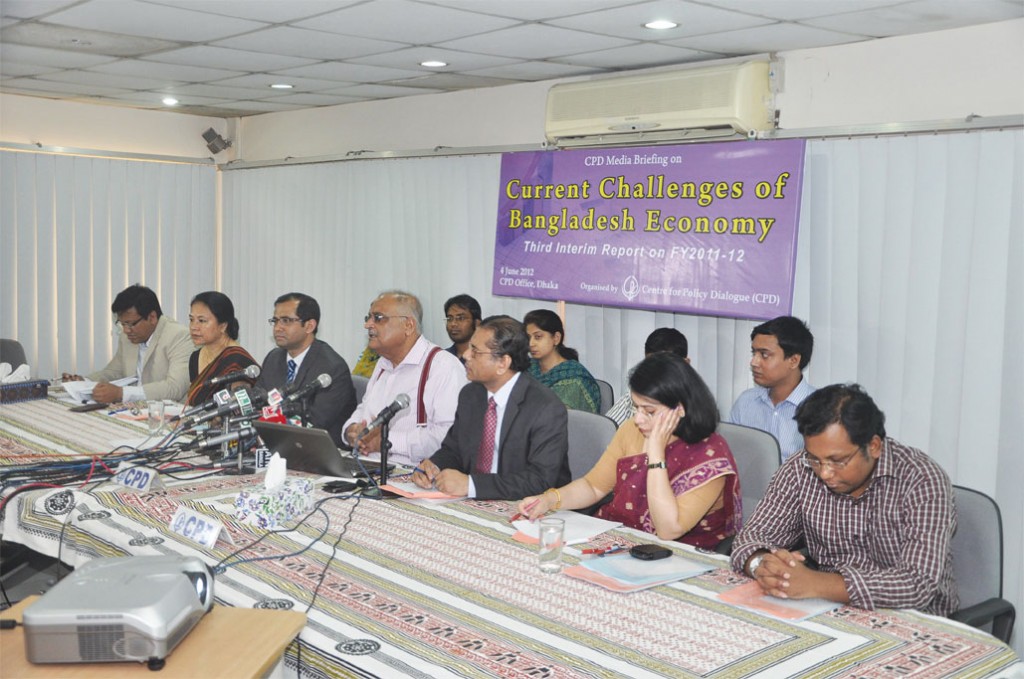CPD organised a press briefing on 4 June 2012 at its office to present its Analytical Review of Bangladesh’s Macroeconomic Performance in FY2012 (Third Interim). CPD Distinguished Fellow Dr Debapriya Bhattacharya presented the review of Bangladesh’s macroeconomic performance in the recent past fiscal year.
The review highlighted that the economy was not able to meet the anticipated GDP growth rate of 7.0 per cent. Investment faltered due to the sorry state of infrastructure in regards with transport and communication, gas and electricity supplies. Adverse effect of large scale bank borrowing by the government is visible in the economy. In order to deal with these multidimensional negative aspects of the economy the report suggested proper utilisation of foreign resources accumulated in the pipeline, and the non-bank sources of financing.
The report identified that despite 6.3 per cent GDP growth, FY2012 was the weakest fiscal year during the recent government’s tenure and energy sector was one of the major sources of such weakness. Massive use of quick rental power plants caused destabilisation of balance of payments (BoP) management. In the backdrop of accelerating import demand for liquid fuel and growing subsidy requirement, government was suggested to enhance foreign exchange receipts by concentrating on ways to increase export receipts, remittance flow and FDI. The analysis indicated sustained inflationary pressure in the FY2013 and provided an outlook for the year. Strengthening the BoP situation was underlined as one of the major tasks for the upcoming fiscal year.
Reflecting upon policy and reform efforts undertaken by the government, Dr Bhattacharya observed that these efforts failed to address a number of key areas regarding public expenditure, state-owned enterprises, civil services and administration, land administration and subsidy management which are significant in accelerating the process of development in Bangladesh. Where reforms and policies were initiated, the pace remained rather slow. Many of such initiations suffered from conflicting interests of key stakeholders due to lack of decentralisation of power. On this issue CPD suggested the government to concentrate on a number of quick yielding reform initiatives as the government is approaching the closure of its tenure.
Considering the overall situation, CPD suggested that the single most important objective for the FY2013 should be to take initiative to revert the investment situation.
Senior CPD officials along with CPD IRBD Team were present at the press briefing.


